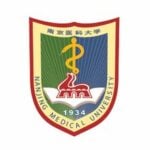
Nanjing Medical University
About Company
Nanjing Medical University (website) was founded in 1934 as Jiangsu Provincial College of Health Policy and Management. In the year of 1957, it moved from Zhenjiang to Nanjing and changed its name to Nanjing Medical College. In 1962, it became one of the first groups of medical colleges in China to offer six-year medical programs, and in 1981, it was approved to award master and doctoral degrees.In 1993, it was renamed as Nanjing Medical University and is one of the key universities sponsored by Jiangsu Province. In September 2015, NMU has been approved to be one of the first groups of medical universities which are co-sponsored by the Ministry of Education, National Health and Family Planning Commission of the People’s Republic of China and Jiangsu Provincial People’s government.
The university consists of twenty-two schools and one independent school (Kangda School). It has twenty-four affiliated hospitals and more than fifty teaching hospitals in Jiangsu, Shanghai, Zhejiang, and Shandong Provinces. Presently the university has more than 1600 employees, including 825 skilled teaching staff, 188 professors, 252 associate professors, 422 doctoral supervisors and 1746 master tutors (includingpeople from the affiliated hospitals). Among them, there is one academician of the Chinese Academy of Engineering, one foreign academician of Institute of Medicine at the American National Academy of Sciences, three “Cheung Kong Scholar” Distinguished Visiting Professors, one young scholar of the “Cheung Kong Scholar Incentive Plan”, one leading talent of the “Ten Thousand Talents Plan”, seven recruited global experts from the National “Thousand Talent” Program, seven winners of the China National Funds for Distinguished Young Scientists, eight winners of the Outstanding Youth Fund, one winner of the National Award for Distinguished Teachers, seven winners of the funds from New Century Excellent Talent Support Program of the Ministry of Education, three “State-Level Teaching Teams”, and one “Innovation Team” from the Ministry of Education. The university is the training base for the High Level Talent Training Plan of Jiangsu Province, which is also known as the “333 Project”.
Campus
The university now has eight first-level discipline doctoral programs (basic medicine, clinical medicine, dental medicine, public health and preventive medicine, pharmacy, special medicine, nursing, humanistic medicine), fifty second-level discipline doctoral programs, eleven first-level discipline master’s programs, seventy-three second-level discipline master’s programs and seven postdoctoral research stations. Options for discipline programs have crossed the boundaries between medicine, science, engineering, management, law, education and literature. It also has three state-level key disciplines, one key discipline for state-level cultivation, 28 national clinical key specialties, two programs of state key discipline (first-level disciplines of Jiangsu) of cultivation and construction, and three key Jiangsu first-level disciplines. Five disciplines – Clinical Medicine, Molecular Biology and Genetics, Biology & Biochemistry, Neuroscience & Behaviorand Pharmacology & Toxicology have ranked among the top 1% disciplines around the world according to ESI. Four disciplines of the university – namely basic medicine, public health and preventive medicine, clinical medicine, and dental medicine – are Strong Disciplines among Jiangsu colleges and universities.
The university has twenty undergraduate programs and three “5+3” integrated programs (undergraduate + postgraduate). Currently it has more than 13,000 students. The university has formed a comprehensive and multi-level educational system that covers undergraduate and graduate programs, as well as post-doctoral training, for full-time students, adults, and international students.
Nanjing Medical University now has one state-level key laboratory, four ministry-level key laboratories, and sixteen provincial-level key laboratories (engineering centers). Since the beginning of the “Twelfth Five-year Plan”, the scientific research level of NMU has continually ascended and the university has undertaken many “863” programs as well as the “973” programs. NMU has also made new breakthrough in the field of receiving National Natural Science Foundation. What’s more, the number of articles indexed in Science Citation Index (SCI) and the impact factors have increased by leaps and bounds. In 2016, 265 projects of NMU were approved by the National Science Foundation, which has ranked the 1st place among the independent medical universities and colleges in China. And NMU has been awarded as the “Advanced University for Science and Technology of Jiangsu Province” in succession.
NMU has developed five state-level excellent courses and four state-level excellent resource sharing courses. There are also five state-level featured programs, five provincial-level featured programs, four provincial-level brand programs and two state-level bilingual education model courses. The university has set up two state-level exemplary experiment teaching centers, nine provincial-level exemplary experiment teaching centers, and nineteen laboratories jointly funded by central and local governments. It also has a state-level experiment zone for innovation of talent cultivation modes. In addition, it has edited six textbooks under the guidance of the nation’s “Twelfth Five-Year Plan”. The enrollment and employment causes of the university have warmly received good judgment and the employment rate is always above 95%. The university has been awarded “Graduate Employment Advanced Collectives of Jiangsu Province” many times.
The university has two campuses, Wutai and Jiangning. Jiangning Campus, located in the university town in Jiangning, Nanjing, has a land area of eighty-seven hectares and is a center of administration, teaching and research.Wutai Campus, located at the south foot of Wutai Hill in Gulou District, Nanjing, has a land area of eight hectares and is a center of clinical teaching and research. With more than 1,080, 000 printed medical resources, more than 1,500,000 e-resources and over 6,000 journals in a variety of languages, the university library boasts a vast collection of resources that makes it a center of medical literature in Jiangsu province. NMU is also responsible for publishing 11 academic journals.
In recent years, the university has extensively carried out exchange activities and has actively developed multi-model relationships and cooperation with other colleges and universities. It has established cooperation and academic exchange with medical colleges and universities in the U.S., Canada, Australia, Sweden, Japan, Taiwan Province, Hong Kong SAR, etc. In 2002 the university resumed the admission of international students and students from Hong Kong, Macao, and Taiwan; and it now has more than 500 such students.
All the faculty members and staff of the university will spare no effort to unite as a whole, making overall plans, launching innovation and reform and try the best to achieve the goal of making NMU grow into a world renowned high-level research medical university with distinctive features.

